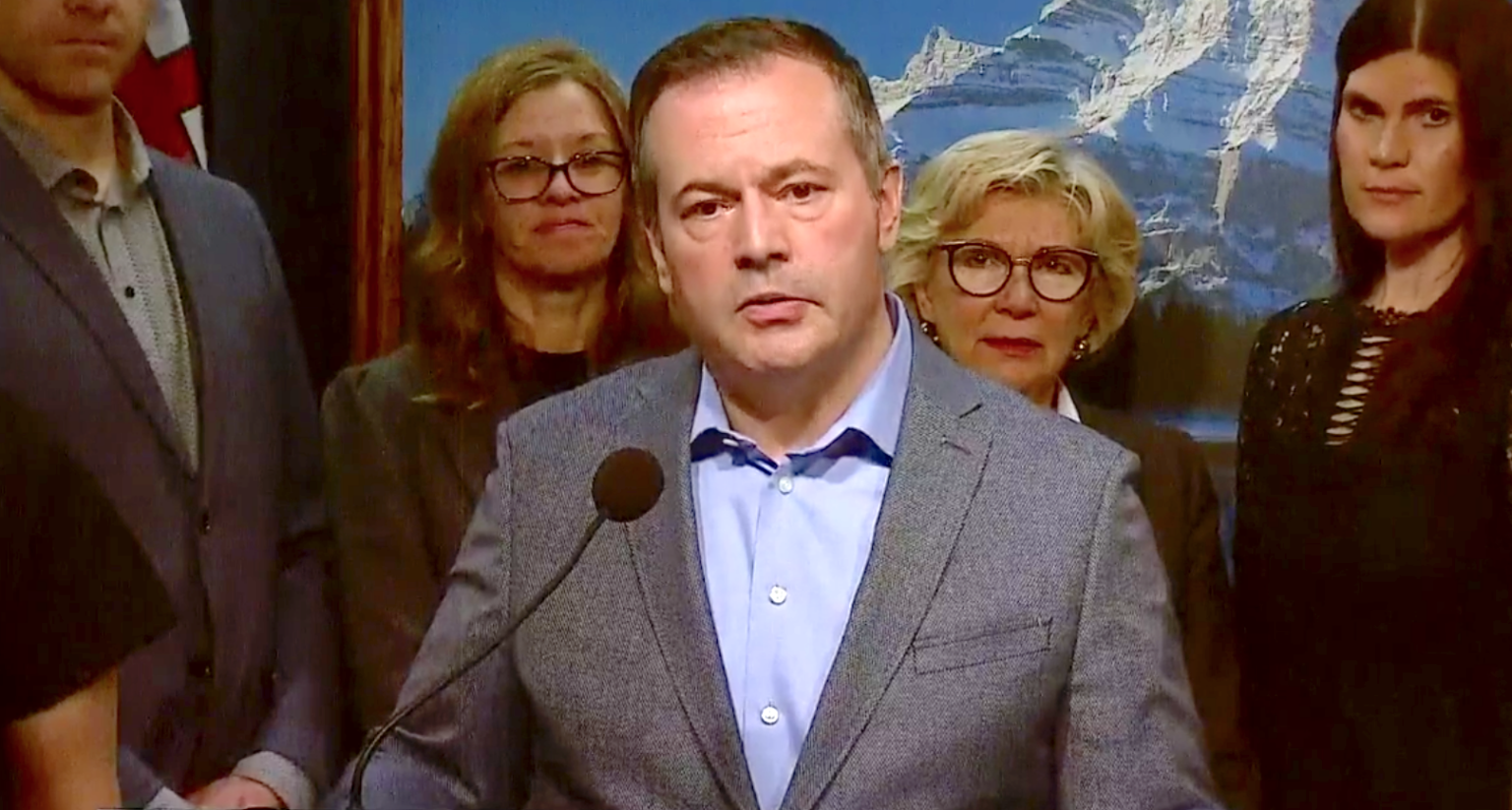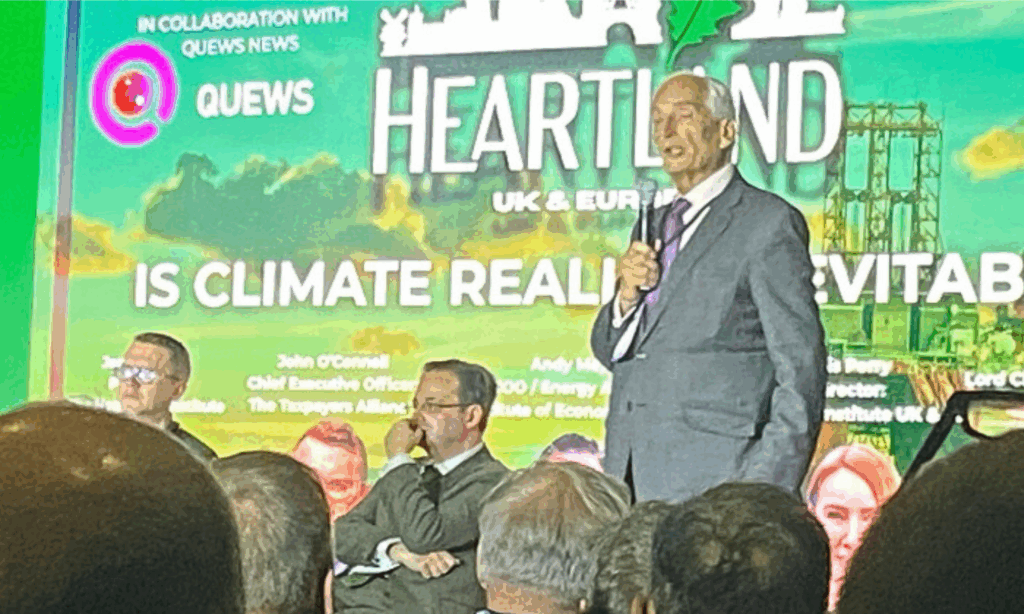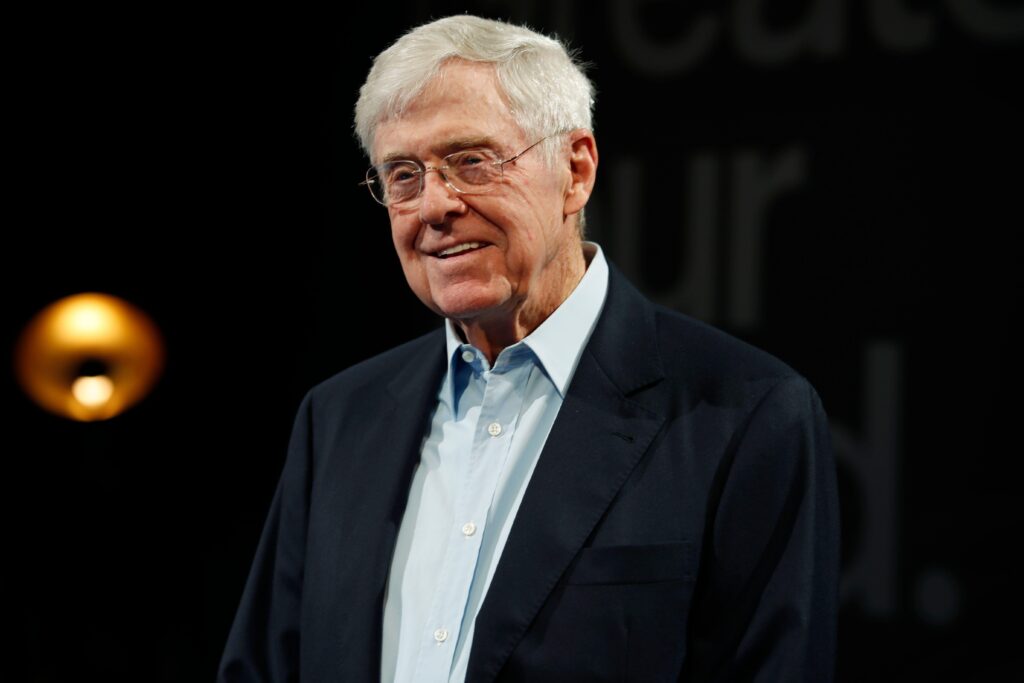Vivian Krause may well claim the title of the Canadian woman who launched a thousand op-eds.
For over a decade Krause’s claim — that American philanthropic organizations are influencing Canadian environmental groups — provided the basis for hundreds of editorials alleging a far-reaching conspiracy to landlock Canadian oil and gas resources. Columnists pointed to Krause’s research as evidence that American-backed eco-radicals had taken over federal and provincial governments in Canada, halted major pipeline projects, and “played right into the business interests of U.S. billionaires by becoming their useful idiots.”
In recent years Krause has selectively pushed back against such claims, taking legal action against some publications that suggested she linked U.S. oil interests to anti-pipeline efforts. While Krause maintains that she never explicitly stated there were commercial interests behind environmental campaigns against the tar sands, she has nonetheless stated her belief the American economy has benefited considerably. Canadian Press issued a correction and apology to Krause for a 2021 story that made this link more explicit. But most of the high-profile columnists and politicians who referenced her work went unchallenged when concluding environmental protest constitutes foreign political and economic interference, or benefits the American energy sector.
Krause’s research laid the foundation for a $3.5 million public inquiry into anti-Alberta energy campaigns and their funding. She’s been credited by Alberta premiers Danielle Smith and Jason Kenney for inspiring the $30 million Canadian Energy Centre, also known as the Energy War Room, which aims to counter what it has described as “domestic and foreign-funded campaigns against Canada’s oil and gas industry.”
Alberta’s public inquiry found no wrongdoing by environmentalists, yet Krause continues to entertain speculation about foreign-funded radicals unwittingly serving the interests of international producers in online spaces run by fossil fuel industry supporters.
Krause rolled out a familiar set of research during a talk to an online group calling itself the Canadian Oil Mafia. Krause told supporters that environmentalists have won the public relations war for Canadians’ hearts and minds, and did not challenge any conspiratorial ideas raised during the hour-long session.
Krause’s claim that environmentalists have won was out of step with the tens of billions of dollars in annual subsidies still paid out to the fossil fuel sector by governments in Canada, the Trudeau government’s purchase of the TransMountain pipeline in 2018, the fact that Canada’s oil sands production hit a record high of 3.6 million barrels a day in the first half of 2022 — largely due to new pipeline capacity across North America — and the record-smashing profits that Canadian oil producers are posting these days, to name just a few examples.
Moreover, according to the U.S. Energy Information Administration, in 2021 Canada was responsible for 51 percent of total U.S. petroleum imports, including crude oil, and 62 percent of its total crude oil imports, making Canada far and away the primary source of foreign oil to the United States.
Krause’s talk, which took place on Twitter Spaces in June 2022, was hosted by Sohaib Abbas and kicked off with, appropriately enough, the Chad Cooke Band’s song Oil Man.
Abbas is the organizer of the Canadian Oil Mafia, whose stated mission is: “To have a positive impact educating others on the Generational Opportunity in the Canadian Energy Industry.” The group consists of people who have made investments in the fossil fuel energy sector, or who otherwise support it. The Canadian Oil Mafia consists of a Twitter Spaces group and, up until a few months ago, a website that sold merchandise featuring pro-oil slogans. Abbas regularly hosts online events featuring speakers commenting on the fossil fuel industry.
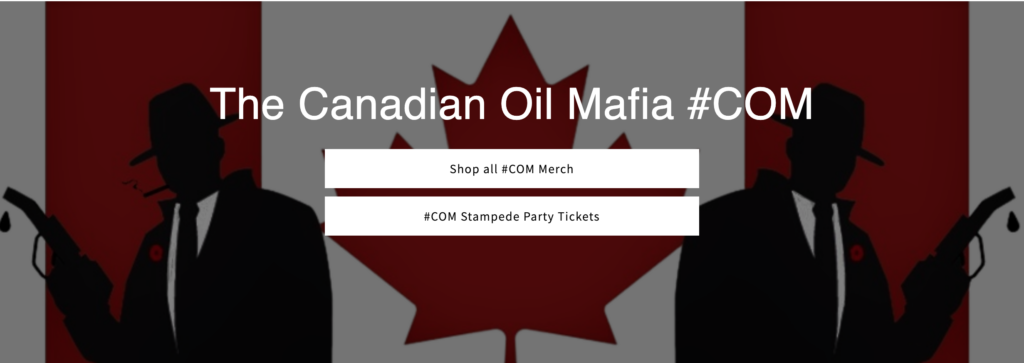
Krause’s June presentation was titled: “Sabotaging of Canadian Oil and Gas.” Twitter recorded 679 people tuning into the event, with an average of about 200 participants throughout Krause’s talk.
After the musical introduction a co-host identified as Mark provided a summary of some of the difficulties experienced by the Canadian oil patch in recent years, from the vantage point of people who feel the Canadian fossil fuel sector has been denied fair access to the global oil and gas market.
The introduction went over some well-trod (if misleading) claims about how Canada “couldn’t get its oil to tidewater” before veering off into speculation about Hollywood celebrities allegedly partying with the Saudi Royal Family while attacking Canada’s oil and gas sector. In fact, Canadian oil exports are at all-time highs, nearing $14 billion CAD in June of 2022, with oil sands production reaching 3.5 million barrels per day in 2021, much of which was pumped south to the Gulf of Mexico through new pipeline infrastructure, including Enbridge’s Line 3.
Asked to comment on this discrepancy, Krause wrote in an emailed statement to DeSmog that “the fact that the industry has recently been profitable does not change the fact that Northern Gateway, Energy East and Keystone XL were canceled.” Though all three of these proposed pipelines were controversial and elicited strong opposition from environmentalists, Northern Gateway’s cancellation was caused in large part by the Federal Court of Appeal rejecting the project due to insufficient consultation with Indigenous groups. The latter two were both canceled by TransCanada Energy (now called TC Energy).
Despite the presentation’s title, Krause did not directly demonstrate who was responsible for allegedly sabotaging Canada’s fossil fuel sector. Participants seemed to already believe the sector had been sabotaged and that environmentalists were responsible.
What Krause offered was the insinuation of guilt by association, and much of that was based on what Krause claims to have discovered about campaigns against the salmon farming industry in British Columbia, and not the fossil fuel sector.
Krause said the issue of salmon farming was particularly contentious in British Columbia in the 1990s, as farming practices were damaging wild salmon habitats (arguments that have been confirmed by recent research). The BC government instituted a divisive moratorium that had the support of environmentalists, including the David Suzuki Foundation.
Krause claimed that she had found evidence suggesting wild salmon had greater concentrations of mercury than farmed salmon, and that studies issued by the Suzuki Foundation — concerning the negative environmental impacts of salmon farming — were flawed. She stated that her efforts to bring this to the attention of the foundation were rebuffed, and this caused her to split with Suzuki, whom she said she once supported. This she claimed was the moment that set her on a course to investigate the money trail behind prominent Canadian environmental groups.
Krause was emphatic that “…the same organizations using the same strategies, the same tactics, and sometimes involving the same scientific journals, the same activists, the same people with the same approach that had sabotaged salmon farming in British Columbia (…) were now turning their eyes to Alberta oil,” but never provided any specific proof.
One host asked whether Krause believed an increase in the number of applications or approvals from the Alberta Energy Regulator starting in 2010 had “tipped off” environmental activists.
Krause responded that the Rockefeller Brothers Fund had been funding the Suzuki Foundation on matters related to the north coast of BC and that, after the California energy crisis and the September 11th terrorist attacks of 2001, that the fund began reorienting its focus toward energy security. Krause said that the Rockefeller fund then became more involved in advocacy and activism circa 2004, providing money to set up meetings in Canada as well as to “develop a strategic plan to address oil and gas development in B.C.” Krause also said the same fund gave “Canadian environmental groups $100,000 each” though without specifying which groups were funded, which she said was “…to prevent the development of a pipeline and tanker port on the north coast of B.C.” She continued, saying that the same funder then provided millions more in the middle aughts to what she termed activist groups.
“Those of us who have a different vision for our country, our future, we need to realize that we’re in a battle of ideas,” Krause said. “It’s not just the best ideas that win. It’s the team that works the hardest. The people that wanted to sabotage all these projects, they worked really hard. They raised a lot of money. They’re winning right now.”
Krause reiterated that environmental activists have successfully sabotaged the “projects that could have enabled our country to be part of the global energy market.”
Krause described how the best intentions of the environmental movement had, as she described it, negatively impacted the lives of ordinary people. “That is one of the things that motivated me — I have no time for people who falsely malign hardworking people. And we saw an entire industry that’s been falsely maligned, unfairly smeared,” said Krause.
Krause again used fish farming examples to support her allegations of manipulation of the fossil fuel sector. She said that the environmentalist effort against the BC salmon farming industry had been done specifically to aid the Alaskan commercial salmon fishing industry: “Alaska had a flourishing commercial salmon fishing industry. And then there was the competition from the farmed salmon. What happened is the Packard Foundation put this program together to help the Alaskan commercial fisheries reposition their product. And they did it by de-positioning or de-marketing the competition,” Krause said. “This was about market access and what they were doing by funding the activist groups was blocking market access. So they were mitigating the trade impacts by exaggerating the environmental impact.”
Krause alleged that the same groups turned their attention to Alberta oil in 2010, and adopted the same strategies for the same purpose. This, Krause explained, was done all while being mindful not to offend Saudi Arabian interests, and so it was Canadian oil that came to be demonized by American ENGOs.
“They didn’t want to talk about the geopolitics, especially after 9/11,” Krause said. Instead, she claimed the US built up its alternative energy supply “in the name of saving the planet rather than in the name of getting off Saudi oil.”
Canadian tarsands oil first surpassed imports from Saudi Arabia in 2004, a consequence of the American invasion of Iraq. By 2014, the United States was importing less oil and petroleum products than at any time in the previous two decades, but this was a consequence of reduced demand and increased domestic production, not a transition to alternative energy sources. Increased American production resulted in a global oil glut by the end of 2014. At Saudi Arabia’s insistence, OPEC maintained their production rate, pushing the price of a barrel of oil down to below $50 by early 2015. This in turn caused both American and Canadian oil production to plummet. It led to major layoffs in the oil patch and contributed to the chronic difficulties experienced by Canada’s fossil fuel sector in subsequent years.
Krause was asked why American philanthropic organizations chose to focus their energies on landlocking Canadian oil and gas, to which she responded Canada was the only country that could help the United States transition off of imported Saudi Arabian oil, which she claimed ranged from 40 to 60 percent of all the oil consumed in the United States.
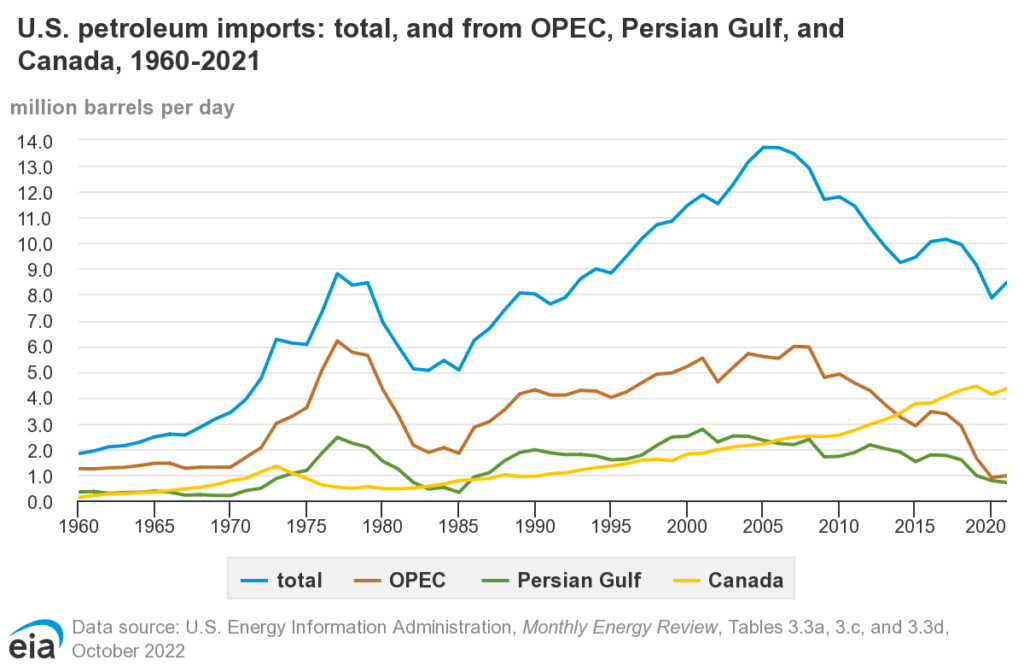
While Canada did replace Saudi Arabia as the primary foreign source of oil imported into the United States in 2004, Saudi Arabian exports to the United States were already declining, falling from a high of 1.77 million barrels per day in 2003 to 530,000 in 2020. Similarly, U.S. oil imports from the Persian Gulf fell over the same period, from an all time high set in 2001, when imports from the region accounted for 23 percent of the U.S. total, down to less than 16 percent in 2018. Current data reveals that Saudi Arabia only accounted for 5 percent of total American petroleum imports, including crude oil. Canada, by contrast, accounted for 51 percent in the same year, continuing a more or less consistent trend that reaches back to the 1990s.
These facts undermine Krause’s claims that the conspiracy to sabotage Canada’s oil and gas sector was successful. As a percentage of its total oil import, the United States is more dependent on Canada today than it has been on Saudi Arabia at any point in the last four — nearly five — decades.
Krause opined that the other reason American philanthropic groups targeted Canada is because, in Krause’s words, “we’re easy to push around,” which was readily accepted by the audience.
“We’ve made ourselves an easy target by never fighting back and never pushing back (…) that’s why I talked so much about salmon farming, because if you want to know the future of the activism against Canadian oil, look at salmon farming. They had just shown that you can bully an industry, an entire industry, and have it discontinue investing in a particular country. It worked on fish. Why not try it on oil?”
The Canadian Oil Mafia latched on to this narrative in particular, with the cohost identified as Mark stating: “We are such a punching bag.”
Given reports that the Canadian government provided more than $18 billion in verifiable subsidies to the fossil fuel sector in 2022, Krause’s claim that the environmental movement has won anything is difficult to believe.
Subscribe to our newsletter
Stay up to date with DeSmog news and alerts


